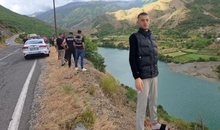
 Flash News
Flash News
The mystery of Renis Dobra's murder, the two main leads of the investigation are revealed
Rama's ultimatum: On Monday, all heads of administrative units must be dismissed
Fires in the country, 4 fires still active, what is the situation?
Rama targets Shkodra prosecutor again: Gjeli wrote philosophical essay with innocence of illegal construction
Wanted for theft, 26-year-old arrested in Durrës
Camps in Gjadër and Shengjin, La Stampa: Sewers are missing, waste will be thrown into the Drin river

"La Stampa" has devoted an article to the camp in Shengjin and Gjadër, where it reports that the immigrant centers are almost ready to open. But there is a problem, there are no sewers, where according to the Italian newspaper the waste will be discharged into the river Drin.
At the moment it is decided that everything will be thrown into the river Drin, according to my information, the first migrants can arrive here from September 10th until the end of the month. They are rushing to get them there.
Aleksandër Preka is the municipal manager of this small town in the north of Albania. A forgotten country on the world map, famous for a military airport closed in 1996 and nothing else.
"We were three thousand inhabitants at the time of communism, we have six hundred left. But now all these new people are coming and will come".
Now it is clear, visible to the eye, extremely defined. Here is the field: containers, nets, fences. There are carabinieri and Italian policemen everywhere.
"These houses are rented for an amount of 30 to 50 euros per month, your soldiers have received 400 euros per month for two years," says Aleksandër Preka from his grocery store.
It's the only store for miles: It has onions, garlic, potatoes, sodas, sweets and cigarettes. The silence, all around, is broken only by the excavator still pounding away over the scorched earth to lay the last pipes.
The first Italian immigration detention center built on foreign soil is now ready. There was no doubt that the work would continue in the port of Shengjin: the waiting point for three hundred people could be opened tomorrow.
It is located between boats, the beach and a small amusement park. This will be the first stop for the emigrants who went to Italy and were deported to Albania, by the choice of the Italian government in agreement with the Albanian government.
From there they will see nothing: the whole perimeter is surrounded. But maybe they will hear the last songs of the summer blasting from the bars by the sea. Then, after identification procedures, they will be loaded on buses and sent to Gjadër. Fifteen kilometers, inland.
Here the connection to the sewers is still missing and doubts begin. The Gjadër administrative detention center is built in the air. The land was unsuitable. There were no foundations. There was no electricity system, no water. This is the reason for the delays. Yesterday they were testing internet connectivity, which will be essential to remotely manage thousands of cases for thousands of lives awaiting trial.
Accepted or rejected? And when will the Italian officials dispose of this work? With what legal certainty? The camp will have 1150 places for detention and 24 for a small internal prison. There are many unsolved questions.
800,000 euros have been spent on the construction of the two structures so far. But it is an expense, which lacks all those "items at the bottom of the list" that have to do with travel, food and accommodation for those who will participate - or will have to participate - in this operation in Albania .
It was supposed to be ready in May. It will be in the next few days, in the fall at the latest. All works are authorized by special procedures. The materials were purchased by the Italian government from companies in Trento, Colaziocorte and Carimate.= They are parts for the construction of containers which are generally used by those displaced by earthquakes or other disasters.
Today, the workers who set up the camp are Albanians, Kosovars and Montenegrins. They work all summer, even on Saturdays and Sundays, because they know that phrase that the mayor of the town repeats.
"They are in a hurry to get the first immigrants. We can't delay any longer."
And in fact, the recruitment has started for three hundred Albanian workers who will have to support the Italian operators in the management of the two detention facilities.
The newly published announcement starts like this: "The Medihospes company, which will manage the Shengjin and Gjadër refugee camps, starting from August, is looking for emergency staff for the services inside the camps according to the following profiles". They are looking for psychologists, cultural mediators, translators, social workers, IT technicians.
For a "simple service worker", work that includes the tasks of food distribution and delivery, accompanying immigrants, cleaning accommodation and common areas, the basic salary will be 1 thousand 200 euros per month for 38 hours of work in week.
"But do you know how much an Albanian high school teacher earns? Less than 600 euros per month".
They talk about this in the only bar in Gjadër. From the money that is arriving with the immigrants. Due to the fact that workers in this area had never earned 30 euros for a day's work.
"I am doing all the installations for the web connection", says worker Andrit Prenga.
"We are close to finishing the work. But the last containers are still missing, the entrance gate is missing, then there is the problem of where they will discharge the waste water".
They have decided that they will pour into the river, and from the river into the sea. In the war between the poor, the last will be those inside the cages. They are ready to fill them. The deportee ships are about to arrive.
"It is not so easy to escape from here. The mountain burned. You cannot hide in the vegetation. And anyway, if they want to leave, let them leave. We all know they wouldn't stay with us."
Towards the coast, rows of twelve-story buildings interrupt the view of the horizon and hide the sea. A restaurateur has covered his new restaurant with paintings featuring the "benevolent" Giorgia Meloni. The rows of tents are still filled with tourists along the coast of Shengjin.
But who are the Albanian tourists? The Albanians themselves, who return home from all over Europe for the holidays.
"I don't know if what will happen here is right", says Mr. Artur Bahiti.
"But for me immigrants are welcome. Because I was also an immigrant and I will never forget it."
Latest news

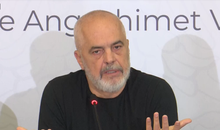
Rama's ultimatum: On Monday, all heads of administrative units must be dismissed
2025-07-11 11:05:59
Fires in the country, 4 fires still active, what is the situation?
2025-07-11 10:56:23
Government irony: Rama strips Dredha of power, then demands law and order
2025-07-11 10:49:10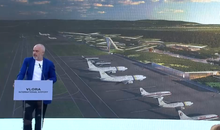
German media: Vlora Airport 'kills' one of Europe's largest wetlands!
2025-07-11 10:37:46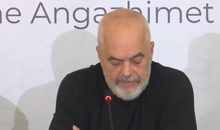
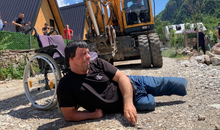
Amid the Alps in Theth, the law punishes even those who try to respect it
2025-07-11 10:14:16
Wanted for theft, 26-year-old arrested in Durrës
2025-07-11 10:03:29
After the dismissals, Rama gathers the mayors in Durrës
2025-07-11 09:42:29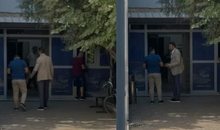
Released on bail, Salianji appears before the Probation Service
2025-07-11 09:34:28

Haxhi Qamil Rama and the directors of the Municipalities!
2025-07-11 09:21:35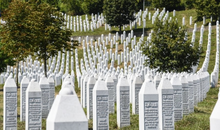
30 years since the Srebrenica massacre in Bosnia and Herzegovina
2025-07-11 09:10:52

From rhetoric to brandy, POLITICO: 9 things Nigel Farage can do in Albania
2025-07-11 08:53:35
Trump announces 35% tariffs on Canadian goods
2025-07-11 08:39:29
Foreign exchange, how much foreign currencies are sold and bought today
2025-07-11 08:24:25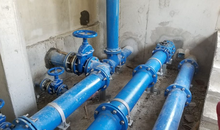

Horoscope, what do the stars have in store for you today?
2025-07-11 07:59:39
Sun and high temperatures, weather forecast
2025-07-11 07:41:09
Morning Post/ In 2 lines: What mattered yesterday in Albania
2025-07-11 07:20:14
Zhupa: In Theth, some Austrian strategic investors want the empty area
2025-07-10 22:57:08
Malltezi: SPAK admits, we are in a process that began with Balla's false report
2025-07-10 22:34:16

Si të çliroheni nga bllokimet emocionale me anë të ushtrimeve
2025-07-10 21:57:24

Lala: Veliaj wanted to return as mayor
2025-07-10 21:40:46

VIDEO/ Brawl in Bolivian parliament, deputies physically clash
2025-07-10 21:20:30


Albania experienced one of the longest heat waves of the last decade
2025-07-10 21:01:09

The Government approves new procedures for declaring residence in e-Albania
2025-07-10 20:39:32

Koka: Northerners will not forget Edi Rama's racist operation in Theth
2025-07-10 20:18:24
The 3 zodiac signs that will be most affected by the 'Full Moon' of July 10
2025-07-10 20:04:49
New director of the National Center of Cinematography appointed
2025-07-10 19:51:12
Korça/ 40-year-old man jumps from fifth floor balcony, in critical condition
2025-07-10 19:40:19
'Tired Woman'/ The Syndrome That Affects Thousands of Women Every Day
2025-07-10 19:34:02
Jane Birkin's original Hermès bag sells for $10 million
2025-07-10 19:26:22

Britain-Ukraine agreement signed for 5,000 Thales missiles
2025-07-10 19:00:25
Fire in Zvërnec, flames endanger two hotels
2025-07-10 18:57:19
Croatia restores compulsory military service
2025-07-10 18:39:01
Spahia: The great truth of the strong accusation of the residents of Theth
2025-07-10 18:35:07


The Supreme Court left him in prison, Meta addresses the 'Constitution'
2025-07-10 17:57:21
New punishment with 'new' regulations
2025-07-10 17:54:46
EU translator fired over fears for Zelenskyy's safety
2025-07-10 17:45:37
'You are a policeman, but not God, take my soul', protest for Agon Zejnullahu
2025-07-10 17:41:21


Video/ Rama repeats the scenario, kneels before Meloni again
2025-07-10 16:56:31
He set fire to a plot of olive trees, 50-year-old man arrested in Shijak
2025-07-10 16:46:19

Rubio: US and Russia have exchanged new ideas for Ukraine peace talks
2025-07-10 16:36:20
Death of 27-year-old, Lipjan Police Commander Resigns
2025-07-10 16:21:28
Video/ An apartment burns in Tirana near the New Bazaar
2025-07-10 16:09:36


Jensila lights up the internet with her birthday greetings to Ledri
2025-07-10 15:42:08
They're full of pesticides! List of 12 products we need to be careful of
2025-07-10 15:31:04

Worker falls from scaffolding in Shëngjin, urgently sent to Trauma
2025-07-10 15:11:03
Malltezi: Within one day they seized my accounts, properties and shares
2025-07-10 15:01:23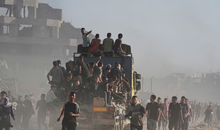
EU: Israel has agreed to more aid to Gaza
2025-07-10 14:55:19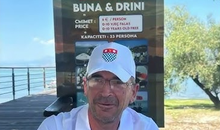

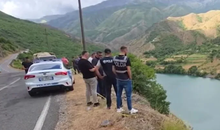
Murder of Reni Dobra, 23-year-old's vehicle pulled from the water
2025-07-10 14:29:23
Trump's tariffs on Brazil raise coffee prices
2025-07-10 14:16:07
Ursula von der Leyen survives no-confidence vote
2025-07-10 14:04:27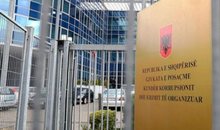


Fire in Lezha, flames near electrical substation
2025-07-10 13:32:24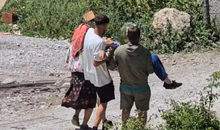
Residents clash with police in Theth, a woman faints
2025-07-10 13:24:38
"Rama and Xanun"
2025-07-10 13:15:46

Zodiac signs most likely to get divorced in July 2025
2025-07-10 12:45:51
A scapegoat for an illegitimate Republic
2025-07-10 12:35:02
"He has devastated his own nation"/ Berisha: Rama imprisons his opponents!
2025-07-10 12:26:54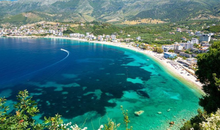

Albanian man injured with knife in Italy
2025-07-10 12:08:55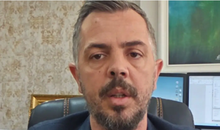


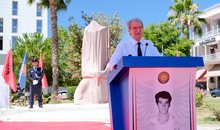


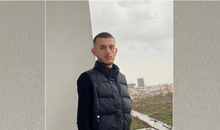
23-year-old in Mat drowned with rope, 4 suspects are being held
2025-07-10 10:58:53
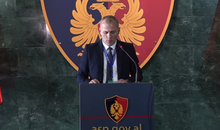
After the dismissals, the new director of the Shkodra Police is appointed
2025-07-10 10:30:10
BIRN: Rama's action for public spaces, a repeated spectacle
2025-07-10 10:29:11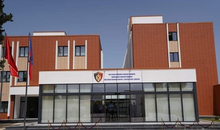
Action in Theth, Shkodra Police leaders dismissed
2025-07-10 10:16:28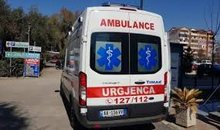
Fatal accident on the Tirana-Durres highway
2025-07-10 10:01:58
The incinerator does not exist, but the government continues to increase funds
2025-07-10 09:51:45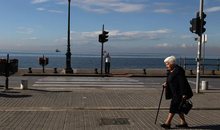
Albania is aging at a rapid pace! 30% of the population is over 60 years old
2025-07-10 09:46:23
End of an era, Modric says 'goodbye' to Real Madrid
2025-07-10 09:36:09
